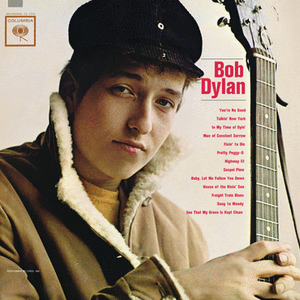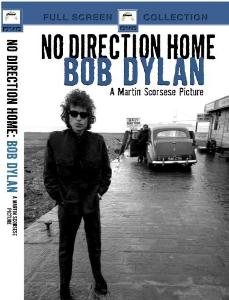Related Research Articles

Joseph Lee Williams was an American Delta blues guitarist, singer, and songwriter, notable for the distinctive sound of his nine-string guitar. Performing over five decades, he recorded the songs "Baby, Please Don't Go", "Crawlin' King Snake", and "Peach Orchard Mama", among many others, for various record labels. He was inducted into the Blues Hall of Fame on October 4, 1992.

Bob Dylan is the debut studio album by the American singer-songwriter Bob Dylan, released on March 19, 1962, by Columbia Records. The album was produced by Columbia talent scout John H. Hammond, who had earlier signed Dylan to the label, a controversial decision at the time. The album primarily features folk standards but also includes two original compositions, "Talkin' New York" and "Song to Woody". The latter was an ode to Woody Guthrie, a significant influence in Dylan's early career.

Gary D. Davis, known as Reverend Gary Davis and Blind Gary Davis, was a blues and gospel singer who was also proficient on the banjo, guitar and harmonica. Born in Laurens, South Carolina and blind since infancy, Davis first performed professionally in the Piedmont blues scene of Durham, North Carolina in the 1930s, then converted to Christianity and became a minister. After moving to New York in the 1940s, Davis experienced a career rebirth as part of the American folk music revival that peaked during the 1960s. Davis' most notable recordings include "Samson and Delilah" and "Death Don't Have No Mercy".
The Memphis Jug Band was an American musical group active from the mid-1920s to the late-1950s. The band featured harmonica, kazoo, fiddle and mandolin or banjolin, backed by guitar, piano, washboard, washtub bass and jug. They played slow blues, pop songs, humorous songs and upbeat dance numbers with jazz and string band flavors. The band made the first commercial recordings in Memphis, Tennessee, and recorded more sides than any other prewar jug band.

"Kind Hearted Woman Blues" is a blues song recorded on November 23, 1936, in San Antonio, Texas, by the American Delta bluesman Robert Johnson. The song was originally released on 78 rpm format as Vocalion 03416 and ARC 7-03-56. Johnson performed the song in the key of A, and recorded two takes, the first of which contains his only recorded guitar solo. Both takes were used for different pressings of both the Vocalion issue and the ARC issue. The first take (SA-2580-1) can be found on many compilation albums, including the first one, King of the Delta Blues Singers (1961). Take 2 (SA-2580-2) can be heard on the later compilation Robert Johnson, The Complete Recordings (1990).
Robert Malcolm Ward "Bob" Dixon is a Professor of Linguistics in the College of Arts, Society, and Education and The Cairns Institute, James Cook University, Queensland. He is also Deputy Director of The Language and Culture Research Centre at JCU. Doctor of Letters, he was awarded an Honorary Doctor of Letters Honoris Causa by JCU in 2018. Fellow of British Academy; Fellow of the Australian Academy of the Humanities, and Honorary member of the Linguistic Society of America, he is one of three living linguists to be specifically mentioned in The Concise Oxford Dictionary of Linguistics by Peter Matthews (2014).

Eric Von Schmidt was an American folk musician and painter. He was associated with the folk boom of the late 1950s and early 1960s and was a key part of the Cambridge folk music scene. As a singer and guitarist, he was considered to be the leading specialist in country blues in Cambridge at the time, the counterpart of Greenwich Village's Dave Van Ronk. Von Schmidt co-authored with Jim Rooney Baby, Let Me Follow You Down: The Illustrated Story of the Cambridge Folk Years.

No Direction Home: Bob Dylan is a 2005 documentary film by Martin Scorsese that traces the life of Bob Dylan, and his impact on 20th-century American popular music and culture. The film focuses on the period between Dylan's arrival in New York in January 1961 and his "retirement" from touring following his motorcycle accident in July 1966. This period encapsulates Dylan's rise to fame as a folk singer and songwriter where he became the center of a cultural and musical upheaval, and continues through the electric controversy surrounding his move to a rock style of music.
King Solomon Hill is the name assigned to a blues singer and guitarist who recorded a handful of songs in 1932. His unique guitar and voice combined to produce a sound that has been described as haunting. After much speculation and dispute, he has been identified as Joe Holmes, a self-taught guitarist from Mississippi.
"Corrine, Corrina" is a 12-bar country blues song in the AAB form. "Corrine, Corrina" was first recorded by Bo Carter. However, it was not copyrighted until 1932 by Bo Carter, along with his publishers Mitchell Parish and J. Mayo Williams.

Ajax Records was a record company and label founded in 1921. Jazz and blues records were produced in New York City, with some in Montreal, and marketed via the Ajax Record Company of Chicago.

"Mississippi" Joe Callicott was an American Delta blues singer and guitarist.
Buster Brown was an American blues and R&B singer best known for his hit, "Fannie Mae".
Bessie Mae Smith was an American blues singer from St. Louis, who recorded for the Okeh, Vocalion and Paramount record labels under a variety of names between 1927 and 1941. She is reported to have been married to Delta bluesman Big Joe Williams, who sometimes credited her with writing his song “Baby, Please Don't Go”. Her songs often included surreal imagery and sexual metaphors.
Document Records is an independent record label, founded in Austria and now based in Scotland, that specializes in reissuing vintage blues and jazz. The company has been recognised by The Blues Foundation, being honoured with a Keeping the Blues Alive Award in 2018. Document Records is the only UK-based recipient of the award.
"Ramblin' on My Mind" is a blues song recorded on November 23, 1936, by Delta blues musician Robert Johnson. He recorded two takes of the song, which were used for different pressings of the 78 rpm records issued by both the Vocalion and ARC record companies.
"Milk Cow Blues" is a blues song written and originally recorded by Kokomo Arnold in September 1934. In 1935 and 1936, he recorded four sequels designated "Milk Cow Blues No. 2" through No. 5. The song made Arnold a star, and was widely adapted by artists in the blues, Western swing and rock idioms.
"When You Got a Good Friend" is a blues song recorded on November 23, 1936, in San Antonio, Texas, by Robert Johnson. The song was unissued until 1961, when it was included on the LP King of the Delta Blues Singers.
Oscar "Buddy" Woods was an American Texas blues guitarist, singer and songwriter.
Bayless Rose was an American singer and guitarist who recorded for Gennett Records in 1930. Although the music industry was highly segregated at the time, it is uncertain whether he was White or African American.
References
- ↑ von Schmidt, Eric, with John Kruth: Remembering Reverend Gary Davis, Sing Out! 51(4) 67-73 2008
- ↑ Dixon, Robert M.W., John Godrich and Howard Rye. "Blues & Gospel Records 1890-1943," 4th ed., page 861 (1997) - ISBN 978-0-19-816239-1
- ↑ Dixon, Robert M.W., John Godrich and Howard Rye. "Blues & Gospel Records 1890-1943," 4th ed., page 984 (1997) - ISBN 978-0-19-816239-1
- ↑ Dixon, Robert M.W., John Godrich and Howard Rye. "Blues & Gospel Records 1890-1943," 4th ed., page 352 (1997) - ISBN 978-0-19-816239-1
- ↑ Dixon, Robert M.W., John Godrich and Howard Rye. "Blues & Gospel Records 1890-1943," 4th ed., page 407 (1997) - ISBN 978-0-19-816239-1
- ↑ Dixon, Robert M.W., John Godrich and Howard Rye. "Blues & Gospel Records 1890-1943," 4th ed., page 279 (1997) - ISBN 978-0-19-816239-1
- ↑ von Schmidt, Eric, with John Kruth: Remembering Reverend Gary Davis. Sing Out! 51(4) 67-73 2008.
- ↑ "Baby, Let Me Follow You Down | The Official Bob Dylan Site". www.bobdylan.com. Retrieved 2018-08-02.